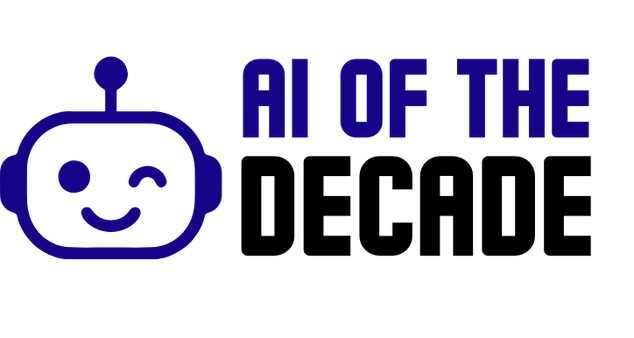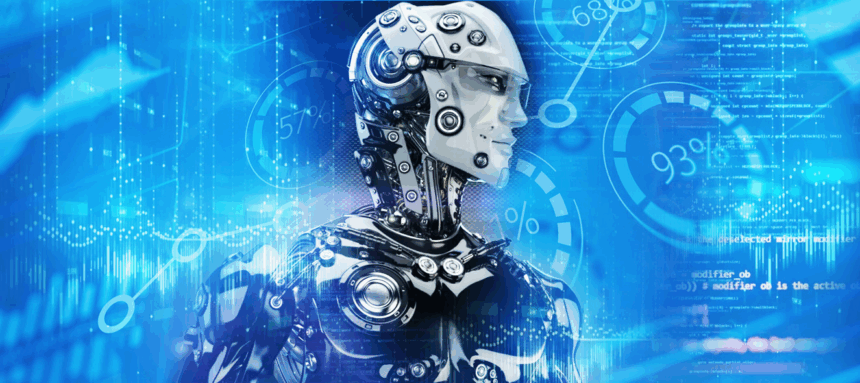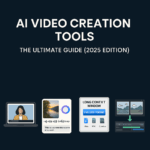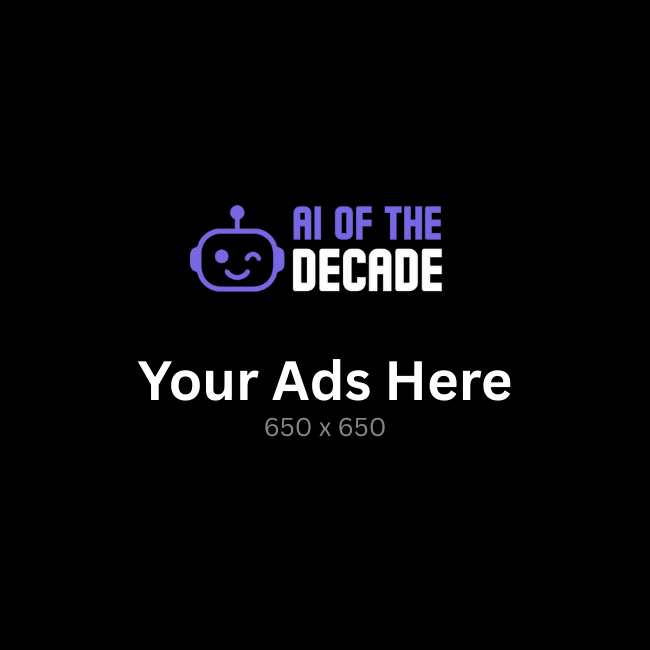The question “Will AI replace jobs by 2030?” is one of the most pressing debates of our time. On one hand, artificial intelligence promises unprecedented productivity, efficiency, and innovation. On the other, it sparks fears of mass unemployment, social disruption, and widening inequality.
From chatbots handling customer queries to AI-powered robots assembling cars, we are already witnessing automation replacing tasks once done by humans. Reports from organisations like the World Economic Forum suggest that millions of roles may be lost to automation in the coming decade, while at the same time, millions of new jobs will be created in AI development, data analysis, and human-machine collaboration.
This article explores the future of work in 2030, asking:
- Which jobs are at the highest risk of automation?
- Which careers are safe from AI replacement?
- How will the job market evolve with AI?
- What can individuals and businesses do to stay relevant?
By the end, you’ll have a clear picture of whether AI is more of a job killer or a job creator, and what you can do to prepare for the AI job market 2030.
Understanding AI and the Future of Work
To answer the question “will AI replace jobs 2030”, we first need to understand what artificial intelligence really means for the workplace. AI is no longer science fiction — it’s already embedded into daily business operations. From predictive text on your smartphone to self-checkout machines at supermarkets, AI is silently replacing human tasks across industries.
What is AI in the Workplace?
Artificial intelligence in business refers to software and machines capable of learning, reasoning, and decision-making. Unlike traditional automation, which follows fixed rules, AI adapts through data. This makes it capable of performing not only repetitive tasks but also decision-driven processes once thought uniquely human.
For example:
- Customer service → Chatbots and virtual assistants respond to FAQs instantly.
- Healthcare → AI systems analyse medical scans faster than doctors.
- Finance → Algorithms detect fraud and recommend investments.
- Retail → Personalisation engines suggest products based on customer behaviour.
The Acceleration of Automation
Between 2020 and 2025, AI adoption grew faster than expected, fuelled by advances in machine learning, robotics, and natural language processing (NLP). Looking ahead to 2030, experts predict AI will continue spreading into every sector of the economy.
- McKinsey forecasts that by 2030, up to 30% of tasks across 60% of occupations could be automated.
- The World Economic Forum’s Future of Jobs Report suggests that while 85 million jobs may be displaced, AI could also create 97 million new roles globally.
Why This Matters for Workers and Businesses
The future of work won’t be about AI simply “replacing” humans, but about redefining roles:
- Humans will focus more on creative, strategic, and empathetic tasks.
- AI will handle data-heavy, repetitive, or dangerous work.
- Collaboration between humans and machines will be the new normal.
In short, AI won’t just change what jobs exist but also how we work. The real challenge isn’t whether AI will replace jobs by 2030, but how businesses and individuals adapt to the transformation.
Will AI Replace Jobs by 2030?
The short answer is: AI will replace some jobs by 2030 — but it will also transform existing ones and create entirely new roles.
According to the World Economic Forum’s Future of Jobs Report, around 85 million jobs may be displaced by automation globally by 2030. However, the same report highlights that 97 million new jobs will likely emerge, meaning the net effect could actually be positive — if workers and businesses adapt.
Jobs Most Likely to Be Replaced by AI by 2030
AI excels in areas where tasks are:
- Repetitive → data entry, basic bookkeeping, assembly line work.
- Predictable → call centre scripts, logistics tracking, stock management.
- Rules-based → routine legal documentation, tax filing, payroll processing.
This means roles in clerical work, manufacturing, transportation, and basic customer service are the most at risk.
Jobs That Will Change, Not Disappear
Many careers won’t vanish, but they will look very different by 2030. For example:
- Marketing → AI tools will automate analytics and A/B testing, while humans focus on creativity and brand storytelling.
- Healthcare → AI will handle diagnostics, while doctors focus on patient care and empathy.
- Education → AI tutors will assist, but human teachers will provide mentorship and critical thinking.
New Jobs Created by AI
Just as the internet created roles like social media managers and app developers, AI will spawn new careers. These could include:
- AI Ethics Specialists → ensuring AI systems remain fair and transparent.
- AI Trainers → teaching algorithms to recognise and process new data.
- Human-AI Collaboration Managers → roles focused on optimising workflows between machines and people.
The Verdict: Replacement vs. Transformation
By 2030, it is highly likely that AI will replace tasks, not entire careers. Jobs that rely on creativity, emotional intelligence, and human judgement will survive and even thrive. The key question is not “Will AI replace jobs?” but rather “Will humans adapt quickly enough to the new AI job market?”
Jobs at High Risk of AI Automation
When people ask “will AI replace jobs 2030”, they often picture entire industries wiped out by robots. The reality is more nuanced: AI replaces tasks, not always full roles. But some professions are undeniably at high risk of automation because they involve repetitive, rules-based work that AI and robotics excel at.
Clerical and Administrative Jobs
- Data entry clerks → Already being replaced by AI-powered OCR (optical character recognition) and workflow automation.
- Payroll processors & bookkeepers → Automated payroll systems and accounting AI can now manage these tasks faster and with fewer errors.
- Receptionists & scheduling assistants → Virtual assistants like ChatGPT, Siri, and Google AI are taking over appointment booking and customer queries.
Manufacturing and Assembly Line Jobs
- Robots have been part of factories for decades, but with smarter AI, machines can now adapt to variations, not just repeat motions.
- Jobs at risk include assembly line workers, quality control inspectors, and machine operators.
- By 2030, industries like automotive, electronics, and textiles may see significant replacement of human labor.
Customer Service and Call Centre Roles
- AI chatbots and virtual agents are handling first-level customer support across banking, e-commerce, and telecom sectors.
- Tools like Drift and ManyChat are capable of managing thousands of customer queries simultaneously.
- This means entry-level call centre jobs could shrink dramatically by 2030.
Transportation and Logistics
- Truck drivers and delivery personnel are facing threats from autonomous vehicles and drones.
- While not yet mainstream globally, pilot projects suggest that by 2030, long-haul trucking may rely heavily on AI navigation.
Retail and Food Service Roles
- Cashiers → Self-checkout AI systems already replacing traditional checkout clerks.
- Fast-food service jobs → AI-powered kiosks and robots can prepare standardised food orders.
- Warehouse workers → Automated picking and packing robots in Amazon-like warehouses reduce human need.
⚠️ Key Insight:
The common thread among high-risk jobs is that they rely on predictable, repetitive tasks that require efficiency over creativity. These are exactly the areas where AI thrives.
Jobs Safe from AI Automation
While AI will replace many routine, rules-based tasks, it struggles with work requiring creativity, empathy, and complex human judgement. This means certain roles are much safer from automation — and may even grow in demand by 2030.
Creative Professions
AI can generate content, but true creativity — innovation, storytelling, and originality — remains a human strength.
- Writers, designers, filmmakers, and musicians who leverage AI as a tool rather than see it as competition will thrive.
- For example, AI might create draft designs, but it’s the human imagination that drives compelling campaigns.
Healthcare and Medical Roles
AI can read X-rays or suggest diagnoses, but it cannot replace empathy, bedside manner, or ethical decision-making.
- Doctors, nurses, therapists, and caregivers will remain crucial.
- By 2030, healthcare roles are expected to expand as AI assists with diagnostics and administration.
Education and Mentorship
While AI tutors can deliver personalised lessons, human teachers provide mentorship, motivation, and inspiration.
- Roles like teachers, trainers, and mentors will adapt to AI-assisted learning environments, but not disappear.
Leadership and Strategy
AI can analyse data, but vision, strategy, and leadership are uniquely human traits.
- CEOs, managers, policymakers, and entrepreneurs will continue to be indispensable.
- Decision-making involves ethics, risk-taking, and long-term vision — things AI cannot replicate.
Jobs Requiring Emotional Intelligence
AI may simulate empathy in chatbots, but real human connection is irreplaceable.
- Psychologists, counsellors, coaches, and social workers require emotional depth beyond AI’s reach.
- These roles may even grow in demand as workplaces become more automated and human support becomes more valuable.
⚡ Key Insight:
When asking “will AI replace jobs 2030”, the safest answer is: Jobs relying on creativity, empathy, ethics, and leadership are least likely to be automated. AI can assist, but human uniqueness will remain irreplaceable.
New Job Opportunities Created by AI
When people wonder “will AI replace jobs 2030”, they often focus only on jobs disappearing. But history shows that every technological revolution creates as many opportunities as it disrupts. The rise of the internet didn’t just kill print jobs — it created web developers, social media managers, and e-commerce entrepreneurs. Similarly, AI will fuel an explosion of new roles by 2030.
AI Development and Maintenance Roles
- AI Trainers: People who teach AI systems to recognise language, images, and behaviours.
- Data Labelers: Professionals tagging and organising datasets for machine learning.
- Prompt Engineers: Specialists who design inputs that optimise AI performance.
Human–AI Collaboration Jobs
AI will not work in isolation. Humans will be needed to guide, manage, and complement AI systems.
- Human-AI Workflow Managers: Experts ensuring smooth collaboration between AI and human employees.
- AI Integration Specialists: Professionals who embed AI into business operations.
- Digital Transformation Officers: Leaders helping companies pivot toward AI-driven strategies.
Ethics and Governance Roles
As AI becomes more powerful, demand for ethical oversight and governance will grow.
- AI Ethics Consultants: Ensuring algorithms avoid bias and discrimination.
- Compliance Officers: Guaranteeing that AI adoption respects laws and privacy standards.
- AI Auditors: Reviewing AI decision-making processes for accountability.
Emerging Creative and Innovation Roles
AI will free humans from repetitive tasks, enabling more time for creativity and innovation.
- AI-Assisted Designers: Combining human imagination with AI tools like MidJourney, Runway, and Canva.
- Content Strategists: Using AI analytics to guide storytelling and campaigns.
- Virtual Experience Designers: Crafting immersive AR/VR experiences powered by AI.
Entirely New Industries
By 2030, AI will give rise to industries we can barely imagine today.
- Personal AI Companions → Think of AI life coaches, tutors, and wellness guides.
- AI in Climate Tech → Jobs monitoring and optimising environmental sustainability.
- AI Healthcare Specialties → Professionals managing AI-powered diagnostic and robotic surgery tools.
⚡ Key Insight:
Instead of asking only “which jobs will disappear?”, we must also ask “what new jobs will emerge?”. The AI job market 2030 is likely to include roles we don’t yet have names for — just as “social media manager” didn’t exist 20 years ago.
AI Job Market 2030 – What Experts Predict
As conversations around “will AI replace jobs 2030?” continue, it’s crucial to anchor our understanding with real data and expert forecasts. Let’s delve into the most reliable projections:
Job Displacement vs. Creation
The World Economic Forum (WEF) paints a nuanced picture by 2030:
- Up to 92 million jobs may be displaced due to automation.
- Conversely, around 170 million new roles could emerge, resulting in a net gain of 78 million jobs. World Economic ForumTechnology Magazine
- These transformations will be driven by technological advances, demographic shifts, and global economic changes. World Economic Forum+1
Task Automation by the Hour
McKinsey estimates that up to 30% of all work hours in the U.S. could be automated by 2030, thanks to the widespread adoption of generative AI. McKinsey & Company+1
Massive Displacement in Numbers
Broad studies suggest staggering possible job disruption:
- Between 400 million and 800 million jobs globally may be displaced by automation by 2030 under rapid adoption scenarios. McKinsey & Company+1
Changing Skill Demands & Occupational Transitions
The WEF anticipates that 22% of existing jobs could be transformed by structural labor changes, with frontline and care roles expected to grow. World Economic Forum
Moreover, 12 million occupational shifts may be needed in both Europe and the U.S. within just five years to keep pace with AI-enhanced labor demand. McKinsey & CompanyAxios
Workers will need significantly enhanced skills: technological literacy, emotional intelligence, adaptability, and creativity are increasingly indispensable. World Economic Forum+1McKinsey & Company
Regional Real-World Example
Portugal offers a case study in modern AI adoption:
- To boost productivity to EU averages by 2030, 30% of Portugal’s workforce needs training in generative AI. Reuters
Key Takeaways
- AI-driven automation will displace some jobs, but also create new types of roles.
- Though up to 30% of job hours may be automated, net job growth is possible if we close skills gaps.
- Large-scale reskilling (~12 million transitions in major economies) will be essential.
- Soft skills and adaptability will become just as critical as technical expertise.
How Businesses Can Prepare for 2030
The question “will AI replace jobs 2030” isn’t just about employees — it’s also about how businesses prepare for disruption. Forward-thinking companies aren’t waiting until automation forces their hand; they’re already adapting to make sure they stay competitive in the AI era.
Invest in Upskilling and Reskilling
The greatest challenge businesses face isn’t the loss of jobs but the skills gap. As AI takes over routine tasks, companies need workers who can handle advanced problem-solving, creativity, and AI management.
- Offer training in data literacy, AI tools, and digital collaboration.
- Partner with universities and online platforms to retrain employees.
- Incentivise lifelong learning with internal development programmes.
Combine Human + AI Strengths
Businesses that thrive in 2030 will view AI as a collaborator, not a replacement.
- Use AI for data-heavy analysis and repetitive work, while keeping humans in roles that require judgement and empathy.
- Develop “hybrid workflows” where employees oversee AI systems to improve accuracy.
- Encourage employees to use AI as a productivity tool (e.g., content generation, analytics).
Focus on Change Management
Resistance to AI adoption is often cultural, not technical. Companies should:
- Clearly communicate how AI will impact jobs.
- Reassure employees that AI adoption also means new opportunities and career paths.
- Build trust by showing workers that they are being reskilled, not replaced.
Strengthen Ethical and Legal Compliance
As AI becomes part of daily operations, businesses must address ethics, transparency, and data protection.
- Establish AI governance frameworks to monitor bias and fairness.
- Comply with regulations like GDPR and AI-specific policies that will likely emerge by 2030.
- Assign AI ethics officers to ensure responsible deployment.
Rethink Workforce Strategy
The AI revolution won’t just be about replacing roles — it will reshape entire organisational structures.
- Expect leaner teams but with higher-skill workers.
- Build flexible employment models (freelancers, gig work, AI-assisted teams).
- Prioritise diversity — ensuring that AI benefits are spread across society.
⚡ Key Takeaway:
By 2030, businesses that treat AI as a strategic partner and prioritise reskilling, ethics, and human-AI collaboration will not just survive — they’ll lead their industries.
What Individuals Should Do to Stay Relevant
The question “will AI replace jobs 2030” isn’t just for businesses and policymakers — it’s deeply personal. Every worker, student, and professional must ask themselves: How do I stay employable in an AI-dominated world? The answer lies in focusing on what AI cannot easily replicate.
Develop Skills AI Can’t Replace
AI is powerful, but it lacks creativity, empathy, ethics, and human judgement. Strengthening these uniquely human skills will keep you valuable.
- Creativity → storytelling, innovation, design, problem-solving.
- Emotional intelligence → leadership, negotiation, conflict resolution.
- Critical thinking → evaluating complex scenarios AI can’t fully understand.
Embrace Lifelong Learning
The skills that keep you safe today may not be enough by 2030. The future demands constant upskilling and reskilling.
- Take online courses in AI, data literacy, and digital tools.
- Learn complementary skills — for example, marketers should master AI analytics, not just copywriting.
- Stay updated on emerging fields like AI ethics, cybersecurity, and robotics.
Leverage AI as a Productivity Partner
Instead of fearing AI, use it to make your work better.
- Writers can use AI to generate drafts, then refine them with human creativity.
- Teachers can use AI tutors for personalised learning, while focusing on mentorship.
- Entrepreneurs can use AI tools to analyse markets, predict trends, and design campaigns.
Build a Personal Brand
In a crowded AI job market, being known for your expertise matters.
- Share insights on LinkedIn or Medium.
- Build a portfolio showcasing your human creativity and strategy.
- Network across industries to open doors AI cannot.
Stay Adaptable and Flexible
The AI job market 2030 will be unpredictable. Roles will shift, industries will evolve, and new careers will emerge. Those who succeed will be:
- Open to career transitions.
- Comfortable working alongside AI.
- Resilient in adapting to change.
⚡ Key Insight:
AI won’t take away your career if you’re willing to evolve with it. The most future-proof workers will be those who embrace change, develop unique human skills, and see AI as an ally, not a rival.
The Impact of Artificial Intelligence on Employment – Benefits vs. Challenges
The question “will AI replace jobs 2030” doesn’t have a simple yes or no answer. Instead, AI will bring transformative changes to the labour market — some highly positive, others deeply concerning.
Benefits of AI on Employment
- Increased Productivity
- AI handles repetitive work at scale, freeing humans for higher-value tasks.
- Businesses can innovate faster with AI-driven analytics and automation.
- New Job Creation
- Roles like AI trainers, prompt engineers, and AI ethicists didn’t exist a decade ago.
- By 2030, entire industries will be powered by AI, creating demand for millions of new roles.
- Safer Working Conditions
- AI and robotics can replace humans in dangerous environments such as mining, construction, or disaster response.
- This reduces workplace injuries and fatalities.
- Global Accessibility
- AI enables remote, global collaboration — creating opportunities for people in regions previously excluded from tech-driven economies.
Challenges of AI on Employment
- Job Displacement
- Millions of routine roles (clerical, call centre, retail, logistics) will shrink dramatically by 2030.
- Workers without reskilling opportunities risk long-term unemployment.
- Widening Inequality
- AI benefits may disproportionately favour wealthy nations and tech-savvy workers, leaving others behind.
- The digital divide could grow wider.
- Skills Gap Crisis
- The speed of AI adoption means many workers won’t have time to retrain.
- A mismatch between AI-driven job opportunities and worker capabilities could leave labour markets unstable.
- Ethical and Social Risks
- Overreliance on AI may cause bias, discrimination, or unfair hiring practices.
- Some industries may exploit automation to cut costs while neglecting worker welfare.
The Balance Point
By 2030, the impact of artificial intelligence on employment will be a double-edged sword. AI will replace millions of jobs but also create millions more. The difference between whether societies thrive or struggle will depend on:
- How businesses adapt with reskilling and hybrid human-AI models.
- How governments regulate AI adoption and ensure fair transitions.
- How individuals embrace lifelong learning to stay employable.
⚡ Key Insight:
AI is not just a job destroyer — it’s a job shaper. The real risk isn’t AI itself, but our failure to adapt fast enough.
FAQs About AI and Jobs in 2030
1. Will AI completely replace humans by 2030?
No. While AI will replace many routine, repetitive, and rules-based tasks, it will not eliminate humans from the workforce. Jobs requiring creativity, emotional intelligence, leadership, and ethical decision-making will remain essential.
2. Which jobs are most at risk from AI by 2030?
Jobs at the highest risk include:
- Clerical and data entry roles
- Call centre and basic customer service jobs
- Cashiers and retail assistants
- Manufacturing and assembly line workers
- Transportation and delivery drivers
3. Which jobs are safe from AI automation?
Jobs safe from AI by 2030 will be those that require:
- Creativity (designers, writers, artists)
- Empathy and care (doctors, nurses, therapists, teachers)
- Leadership and strategy (managers, policymakers, entrepreneurs)
- Complex problem-solving (researchers, consultants, engineers)
4. How many jobs will AI create by 2030?
According to the World Economic Forum (WEF), while up to 85–92 million jobs may be displaced, AI could also create 170 million new roles globally by 2030. These include positions in AI ethics, data analysis, and human–AI collaboration.
5. Should I worry about AI taking my job?
It depends on your field. If you work in a highly repetitive or process-driven job, AI may replace parts of your role. However, if you continuously upskill, adapt, and focus on uniquely human skills, AI will more likely augment your job rather than eliminate it.
6. What should workers do to prepare for the AI job market 2030?
- Learn AI tools relevant to your industry.
- Develop soft skills like creativity and communication.
- Embrace lifelong learning and adapt to new technologies.
- Build a personal brand to stand out in a competitive job market.
7. Will AI increase unemployment by 2030?
AI may lead to short-term unemployment in sectors with high automation, but long-term projections suggest net job growth if societies invest in reskilling and education.
8. What is the future of work in an AI-driven world?
The future of work will be a hybrid model where humans and AI collaborate. Humans will handle tasks requiring judgement, creativity, and empathy, while AI will focus on efficiency and data-driven processes.
Conclusion – Preparing for the Future of Work
The debate around “will AI replace jobs 2030” isn’t about a simple yes or no. AI will certainly replace many routine and repetitive jobs, but it will also create new industries, new roles, and new opportunities we can’t fully imagine yet.
The future of work in 2030 will be defined by:
- Transformation → Jobs won’t just vanish; they’ll evolve, combining human creativity with AI efficiency.
- Opportunity → From AI trainers to ethics consultants, millions of new careers will be born.
- Adaptability → Workers and businesses that invest in reskilling and continuous learning will thrive.
The challenge is not whether AI will replace jobs — it’s whether people, companies, and governments can adapt fast enough to harness AI as a partner, not a threat.
👉 The takeaway is clear: if you focus on uniquely human skills — creativity, emotional intelligence, strategy, and ethics — and learn how to leverage AI tools, you won’t be replaced. Instead, you’ll be leading the AI-powered workforce of 2030.
For more insights into the technologies shaping the future of work, visit AI of the Decade — your guide to the tools, trends, and innovations defining our AI-driven world.
